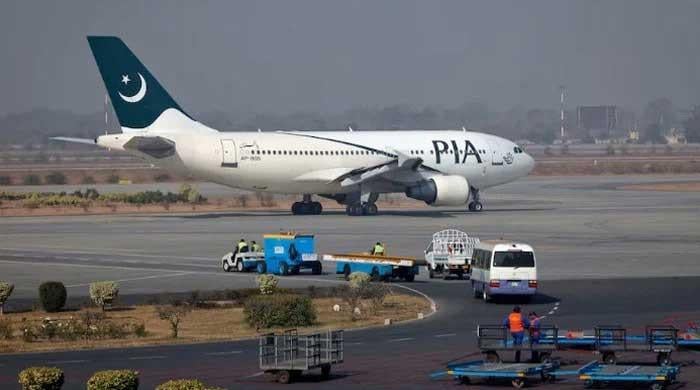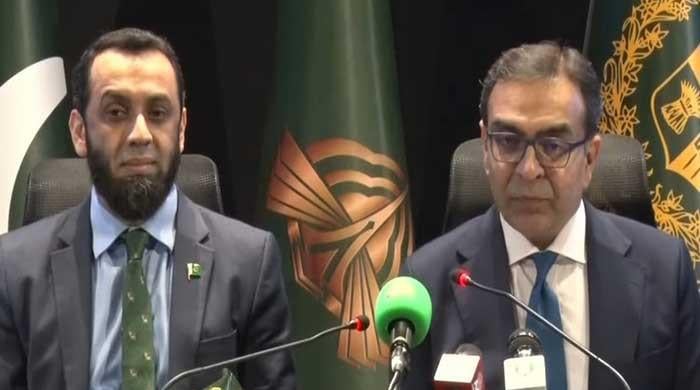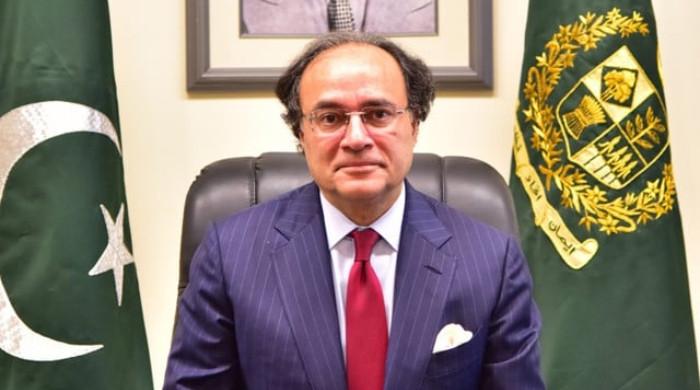KSE-100 takes sharp dip to touch lowest level in 2018
Political uncertainty, foreign selling have driven down the confidence of local investors who have taken a risk-averse position to avoid losses
July 09, 2018
KARACHI: The local bourse witnessed its lowest level in the current year after the benchmark KSE-100 index shed 995.66 points to touch 39,288.48 points.
The downfall trend in the index started last Monday, when an accountability court hearing the Avenfield properties corruption reference against former Prime Minister Nawaz Sharif said it would announce its verdict on Friday. The instability injected into the market continues to pull the index down a week later.
The court's July 6 verdict, that sentenced Nawaz Sharif to eleven years in prison along with a fine of £8 million fine (Rs1.3 billion), has stirred investors. Nawaz’s daughter, Maryam, was also sentenced to eight years with a £2 million fine (Rs335 million), while his son-in-law, Captain (retired) Safdar Awan, received a one-year prison sentence.
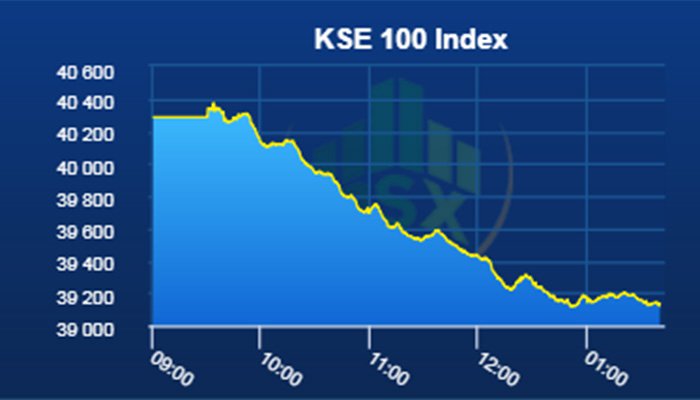
On Monday, the market opened at 40,284 points and as the day's trading began, the bears drove it down throughout the first half of the session. By noon, over 30 million shares had been sold. The index had fallen by 1,137 points to 39,252.08 points by 3pm. It deteriorated a little more before closing at 39,288.48 on the first trading day of the week.
According to Yawar-uz-Zaman, Vice President of the Research Department at Shajar Capital, persistent political uncertainty has created an environment of risk-averse trading.
"Political uncertainty and foreign selling, which has persisted in the market for a while now, have driven down the confidence of local participants," Zaman told Geo.tv.
He further observed that local investors were waiting for a further dip in the market before they resume buying.
The cement sector took a significant hit during the first half of intra-day trading. Investors seemed to be unwilling to move away from their selling positions. With the sector's demand directly linked to the government's Public Sector Development Programme (PSDP), investors' lacklustre interest in the sector seemed to be driven from a cut in the programme by the caretaker government.
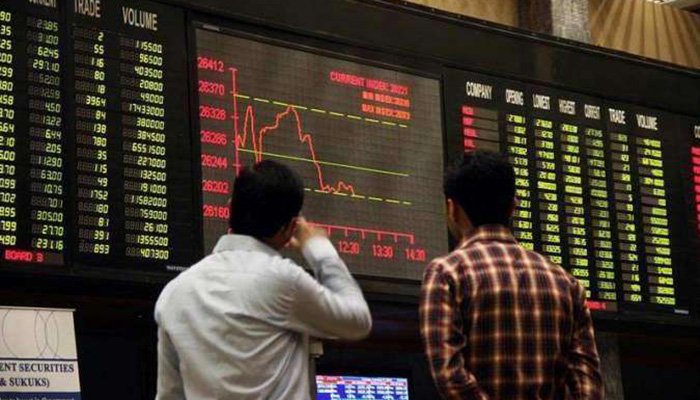
According to Zaman, the overall sentiment will remain depressed until the new elected government takes control. "Investors won't take new positions till the political setup shows signs of certainty," he noted.
Speaking to Geo.tv, Samiullah Tariq — Director of the Research Department at Arif Habib Corporation — also reiterated that political uncertainty was the primary factor in the bearish trend that took over the market during the day's trading.
"The money laundering inquiry that has been recently launched has also affected the market, especially after the presidents of a few banks have been placed on the Exit Control List (ECL)," he said.
On Friday, the Federal Investigation Agency (FIA) arrested the president of a local bank, Hussain Lawai, in connection with alleged money laundering worth billions of rupees. The investigation agency is probing a potential money-laundering scandal of Rs35 billion implicating a top political leader along with his businessmen and banker friends.
"With Nawaz Sharif expected to return to the country on July 13, the interest of local investors is likely to return in the next week," Tariq said.
Responding to a question about the selling trend in the cement sector, the research professional noted that the sector's earnings have had a past trend of taking a hit with the country's macro outlook.
"Cement along with the auto sector has underperformed in the last year, and the trend is likely to continue till the polls are held," he said.
While the experts agree over political uncertainty being the major factor in the market’s downturn, Adnan Sheikh from Pakistan Kuwait Investment company is not expecting the market to recover with the return of former prime minister. "It took four hours to arrest Captain Safdar only because he was surrounded by his supporters. So the arrest of Nawaz Sharif might not go as peacefully as planned if his supporters also surround him as he comes back," he said.
He added that the elections themselves were adding to market uncertainty.
"First, we don’t know if PMLN boycotts elections, or if the elections are delayed. And even if they do take place on time, and PMLN and PPP make an alliance in wake of the recent events. So there is a lot of uncertainty and that is translating into market deterioration."
This instability cycle is also self-reinforcing. Adnan explained that when such political uncertainty hounds the stock market, investors pull out their money. And when fund managers, like mutual funds, have to return the money, they try to sell it in the market and face difficulty in finding buyers. The increase in uncertainty, coupled with the decrease in trade volumes creates double the pressure on the index, which might take a while before it is back on the road to recovery.






